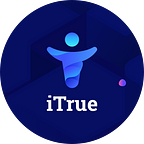The answer to today’s biggest privacy concerns
Social media. Ubiquitous mobile data connectivity. Internet-of-things.
There is no question that the information age has brought in a multitude of benefits that have opened our horizons to faster, cheaper, and more accessible transactions and access to online information. However, users are paying the price — and it is in the form of privacy.
Data is said to be the main driver of progress, profit, and productivity today. Businesses need user data in order to deliver better services. Advertisers need data to deliver more relevant messaging. Public entities like governments need data in order to maintain order and security.
In all of these, there is always the risk that users’ data is being unfairly utilized for profit or gain by the businesses that collect and manage it.
Notwithstanding the latest enforcement of privacy-driven laws and regulations like the EU’s GDPR, users still find themselves at the losing end of the bargain — we often get free services like social networking, email, and content, but in exchange for providing our personal data in the form of habits, actions, preferences, and even information on our identities and connections.
Is privacy literacy still an issue?
When the European Union enacted the GDPR, the main goal was to empower users to have more control over their data and privacy. Thus, users had to play an active role in agreeing to data collection and could even ask for their data to be deleted by the collecting business. Meanwhile businesses are now required to be more forthcoming with their data usage, and had to be more explicit in requesting user assent to using their data.
The GDPR goes beyond the EU, however, as businesses outside of the region that may be catering to EU citizens both within and outside of the EU’s jurisdiction are also required to comply with such regulations. Given this, businesses across the globe — both online and offline — started to update their privacy policies to become more in line with the global standard for privacy. True, this entailed some additional cost and effort, but the main objective is to ensure a better privacy regime for users.
The issue, however, is that many users seem to be mostly oblivious about their own privacy. Informal surveys indicate that as much as one-thirds to two-thirds of users are not aware of the GDPR — and this is in Europe.
Meanwhile, in the US, at least half of internet users do not trust both the regulators and online services to protect their personal data.
After all, an updated privacy policy and explicit consent can only go so far. How sure can users be that their data is not being wrongly used and abused by the platforms they trust to be gatekeepers to their data?
The future of privacy
Speaking about the iTrue platform, the company’s CEO Max Tkachenko, says this: “Our mission is to empower each individual to have control over their personal data, how it is used, and how to profit from it. However, beyond simply offering improved user privacy, the solution also gives both users and businesses an opportunity to create applications that scale. “The iTrue platform enables developers to build solutions centered around user security, privacy, and safety,” he adds.
The extreme approach to privacy would be to totally close off one’s data from being viewed and used by other entities like businesses, governments, and other users. However, a balanced approach would be the more viable way to protect and benefit both users and businesses. Here is where iTrue would truly shine.
Join Whitelist: https://itrue.io/sign-up.html
Talk to iTrue team: https://t.me/itrueio
Watch the iTrue video: https://youtube.com/watch?v=yE8RGafbuTU
Read the White Paper: https://itrue.io/files/iTrueWhitePaper.pdf
